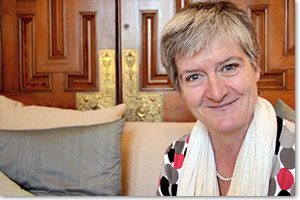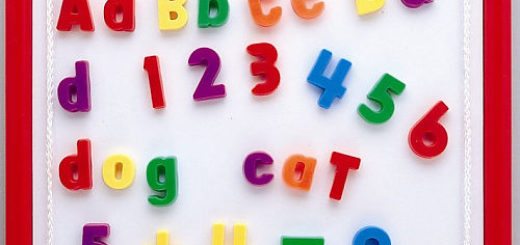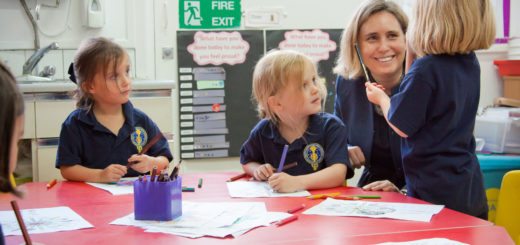An exclusive interview with Ms Angela Rawlinson, headmistress of St Mary’s school, Hampstead.
Mums In The Wood had the pleasure of meeting with the very charming, warm and clearly, very kind hearted, head mistress of St Mary’s school Hampstead on 10th November 2015. This calm soft spoken lady, loved by her pupils and parents alike, is very much the soul of the school. Her personality and attitude have shaped what the school stands for and is reflected in the pupils it sends out to society. I am very grateful to her for taking the time to meet with me, answer my questions at length and give all my readers a real insight into the school’s ethos and policies. I hope parents find the interview useful, when faced with making decisions about choosing a school for their children.
Question:
Being a Catholic school, how much emphasis do you place on religious education and how do you balance the religious affiliations of non-Catholic children?
Answer:
Catholics believe that Religious Education is not one subject among many but the foundation of the entire educational process. The beliefs and values it communicates inspires and unifies every aspect of school life.
At St. Mary’s school we follow “The Year of Faith” Religious Education Programme for primary schools provided by the Diocese of Westminster. We work on common themes throughout the school and as a result the children experience a programme which enables and supports their faith development. Throughout the year, our curriculum also explores other major faiths and their important celebrations.
We give priority of places to children who are baptised Catholic but we do accept other Christian children and children from other faiths too. However, the parents must agree to support the Catholic ethos of the school. No child is exempt from religious lessons or liturgical celebrations. We believe that what is important is that we teach the values and qualities that Catholicism is based on not just the essentials of the Catholic faith. The foundation of Catholicism is, like all other religions, based on being kind, forgiving, having a positive influence on others and on themselves and being good people.
All children participate fully in occasions of worship through Assemblies, the celebration of Mass, Praying Together activities, prayer before meals and prayer at the beginning and end of the day. The children of Year 6, celebrate a special Leaver’s Mass at the end of the academic year to which members of their families are invited. The school celebrates the Church’s feast dates and on such occasions the liturgy is prepared by the school actively involving the children. The children are taught a wide variety of liturgical music which enhances all our worship.
One problem is that there are not many Catholic secondary schools at which children can continue their religious education alongside academics, but parents feel that what is important is that the foundations have been laid at primary level and so are happy for their children to continue at non-Catholic secondaries.
Question:
What do you think are the most important things to focus on for children in the early years? i.e. Is it academics, social integration or emotional development? How would you prioritise these three areas for children in the early years and why?
Answer:
There are seven areas of learning and development that shape our educational programmes in our Nursery and Reception classes. All areas of learning and development are important and inter-connected.
- Communication and Language Development involves giving children opportunities to experience a rich language environment to develop their confidence and skills in expressing themselves and to speak and listen in a range of situations.
- Physical Development involves providing opportunities for young children to be active and interactive and to develop their co-ordination, control and movement. Children must also be helped to understand the importance of physical activity and to make healthy choices in relation to food.
- Personal, Social and Emotional Development involves helping children to develop a positive sense of themselves and others, to form positive relationships and develop respect for others, to develop social skills and learn how to manage their feelings, to understand appropriate behaviour in groups and to have confidence in their own abilities.
- Literacy Development involves encouraging children to link sounds and letters and to begin to read and write. Children must be given access to a wide range of reading materials (books, poems and other written materials) to ignite their interest.
- Mathematics involves providing children with opportunities to develop and improve their skills in counting, understanding and using numbers, calculating simple addition and subtraction problems and to describe shapes, spaces and measures.
- Understanding the world involves guiding children to make sense of their physical word and their community through opportunities to explore, observe and find out about people, places, technology and the environment.
- Expressive Arts and Design involves enabling children to explore and play with a wide range of media and materials as well as providing opportunities and encouragement for sharing their thoughts ideas and feeling through a variety of activities in art, music, movement, dance, role play and design and technology.
Each area of learning and development is implemented through planned, purposeful play and through a mix of adult-led and child-initiated activity. Play is essential for children’s development, building their confidence as they learn to explore, to think about problems and relate to others. Children learn by leading their own play and by taking part in play which is guided by adults. There is an ongoing judgement to be made by the St Mary’s Early Years Team about the balance between activities led by children and activities led or guided by adults. Our Team responds to each child’s emerging needs and interests, guiding their development through warm, positive interaction. As children grow older and as their development allows, it is expected that the balance will gradually shift towards more activities led by adults to help children prepare for more formal learning ready for Year 1.
Question:
What are your views on streaming children and at what age would say it is appropriate?
Answer:
St Mary’s is an inclusive school and we aim to incorporate this in every aspect of school life and living. We set the highest possible standards in supporting each other as we strive to achieve our personal best, to become what we aspire to be. We believe that every child is unique and we value their unique contribution to the school. Class teachers set work appropriate for each child’s age and development and so within each class, children may be completing work of varying levels. Children are grouped within each class from Reception. However, these groups are flexible and can and do change regularly depending on the topic being taught and the method of delivery.
Being non-selective, we have parents with children at both ends of the spectrum. While most parents are happy with the flexible groups in the early years, as the girls progress through the school, parents tend to disregard this fact and do expect that academic preparation for entrance exams to secondaries are to the same levels as the more selective schools.
Therefore, as the children move through the school, the pace of the lessons increase and where appropriate, children may be ability grouped or streamed for certain subjects. Up to Year 4, teachers manage pupils of mixed abilities in the same class by pitching the lessons at the top level and helping those who may struggle, along. Streaming tends to happen in Year 5 & 6 for the core subjects of English and Mathematics. For other subjects and learning opportunities, friendship groups are used and this approach is just as effective.
As children often have many strengths and talents across all areas of school life, it is equally important to develop these. This is best done through extra curricular clubs and activities such as squads and teams for sports, one to one lessons for music and art and other enrichment opportunities.
Question:
Does streaming affect them later on in life, in the choices they may make and how they may view themselves?
Answer:
Possibly, if they come out of school with less confidence than their peers and lower self esteem. But this is why, at St Mary’s at the beginning of each academic year, up to Years 5 and 6, the classes are mixed so that children have the opportunity to re-invent themselves. If you have all the children sitting together in a classroom without being grouped or streamed, there is a possibility that the method may have the opposite effect to what is desired i.e. all the children striving to work at the same level and those struggling may fall further behind. If a child is not academically up to the standard of her peers, we believe in giving her other moments to shine.
Streaming is a double edged sword. Either it will make a child try twice as hard and be determined to work to the same level as the children in the top set or they will become complacent and not really try much at all. By Year 6 the girls themselves become quite philosophical about the streaming process and which groups they have been placed in.
However, we, as a school, have to handle the situation very carefully. We strive to improve self confidence throughout their time here so that they understand that even if they are struggling in one area, they can still shine in another.
Question:
Do you have a gifted and talent list and are parents made aware of the names on the list?
Answer:
Yes and it is an internal list. Parents would be aware to the extent that children are being given enrichment work but not beyond that. We do not move children into other classes but keep them within their peer groups. We believe in helping them grow as a whole and not merely pushing them upwards. They are given a lot of project work and external programmes are implemented to help acceleration and enrichment. We give them opportunities to grow and develop their skills. The lists are reviewed annually and when we make decisions, we try to do so as carefully as possible. External reports along with the teachers’ experiences and what the schools feels is right are all considered.
Question:
How important is community spirit and how is it fostered within the school?
Answer:
We perceive ourselves as members of God’s family and in that regard we care and support each other, nurture and encourage, challenge and inspire each other, adults and children alike to become the people God created us to be. At the heart of the Christian family is reconciliation – i.e. when things go wrong we acknowledge our wrongdoing, forgive those who have wronged us and start afresh. For children and staff, each new day is a new beginning. We strive to learn from our mistakes and move forward as stronger people. It is important for faith schools to have a set of values that everyone in the school community can own and live.
Excellence is an inclusive value at St Mary’s School and we strive for this every day across all areas of school life.
Community is an all pervading quality present when we work together in an atmosphere of support and love. The dignity of each person is recognised as that of a human being made in the image of God. Everyone is genuinely listened to and what they say is heard. Community, is breaking the bread of life together as we live God’s dream for each one of us, more fully. Together we learn, we pray, we laugh and cry.
Dignity is treasured in the school community, nurtured in the individual and enhances the life of the school. This sense of dignity and respect provides opportunities for each person to recognise and celebrate their own self worth. It demands, when challenging circumstances arise, that we seek dignified solutions for all concerned.
Justice acknowledges and embraces diversity, ensures fair treatment for all, promotes just relationships and structures within our school and in the world. It challenges opinion and actions that contradict Gospel values and requires us to stand shoulder to shoulder with the oppressed.
Hope inspires and enables us to persevere in the face of difficulties. It empowers us to fulfil our aspirations and grow towards spiritual and emotional maturity.
Gentleness is the fruit of quiet self possession that has been gained through daily growth in self understanding. It is a quality which helps us to keep a calm spirit a peaceful heart and control in our words and gestures, even when the circumstances seem to call forth or at least justify, an explosion of displeasure or anger. Gentleness results in right relationships with God, self and others. Gentleness keeps our hearts always within the boundaries of justice reason and love.
Question:
Given the fact that there are a lot of Catholic parents in the area for whom English is not a first language, what level of English does the school expect from their nursery entrants and how does the school work towards brining all children up to the same standard by around Year 1.
Answer:
Most schools in London have a percentage of their pupils for whom English is an additional language. St Mary’s is no different and we celebrate the fact that over half of our school community is bi-lingual and some are even tri-lingual, staff included.
Children coming into the nursery are not required to be fluent in English. Rather we are looking for them to be confident speakers and communicators first and foremost whether this is in English or their home language.
At St Mary’s the curriculum is delivered in English and we believe that full integration is best for our non-English speakers. Any children for whom English is not a first language will be in class with their peers and will be encouraged to listen and copy them. The majority of children, especially younger children are happy to experiment with English and very soon they can use simple commands and communicate with their peers. Playgrounds are also excellent places for this to occur.
On the rare occasion however where a non English child is struggling with the language we are fortunate to have a specially trained and qualified member of staff who will offer extra support either in class or on a one to one basis. This support takes the form of learning key vocabulary for lessons day to day commands and generally helping to boos confidence and self esteem.
The above methods of full integration and support if needed, means that very quickly non-English speakers are able to fully access the curriculum and make progress. Once this starts to happen and the child feels comfortable and secure then their spoken English will continue to improve which in turn leads to further success.
My thoughts
Before I entered the Halls of St Mary’s, I was aware that the school had a reputation for having a lovely, caring atmosphere and feel to it. Parents had spoken of the nurturing, patient approach and the girls I had met were friendly, happy and confident. What I did not appreciate fully, is that it is the personality of the headmistress, Ms Rawlinson that is key to the way in which the school functions. It is a combination of her beliefs in inculcating traditional values in her pupils together with a calm understanding of her student’s personalities that has created a culture of kindness and empathy in the girls. It is equally impressive that St Mary’s has balanced its excellent pastoral care alongside its high academic standards. It is well regarded academically, with exits which are on par with the other schools in the area. The school has a large outdoor space which is always something to be appreciated with space being at a premium, especially in this area. It has an excellent teacher to student ratio with around one teacher and two assistants for each class of 18 children, in the nursery year. Communication channels between parents and the school are always open and newsletters are sent out weekly. Art work is sent back regularly and teachers are available at the end of the day for parents to have a quick chat and catch up if there is anything concerning them about their daughters. All in all, a lovely, nurturing, yet academic school with good results, where you can be sure your child will grow up to be first and foremost a good human being who is confident, articulate, well adjusted and best of all, happy.











